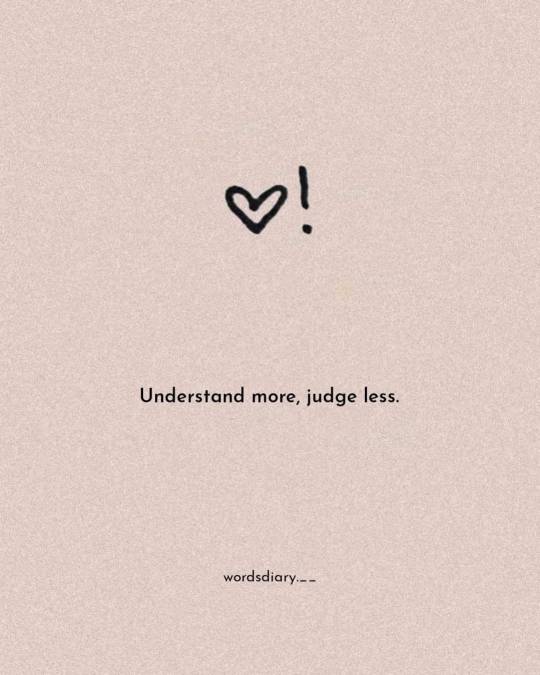#judgmental
Text

Specifically YOU who gifted me this amazing game

"clean" version
188 notes
·
View notes
Text
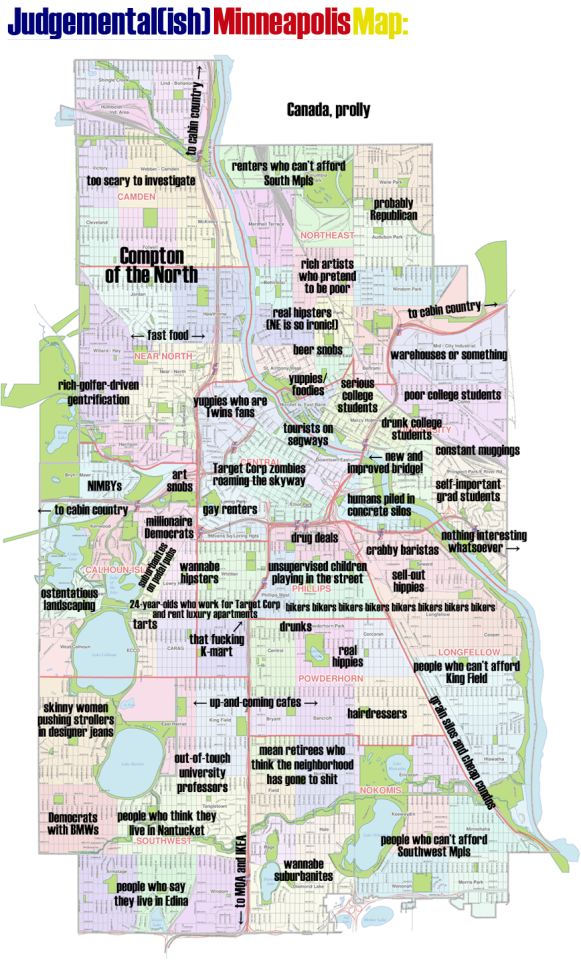
Minneapolis, MN
Copr. 2024 Judgmental Maps. All Rights Reserved.
#minneapolis#minnesota#stpaul#judgmentalmaps#judgmental#judgemental#judgementalmaps#maps#map#humor#comedy#msp#jokes#offensive#stereotypes#mn#submission
143 notes
·
View notes
Text
"A few twenty-mile runs and the Dean'd be a different man."
"Well, yes," said the Bursar. "He'd be dead."
Terry Pratchett, Moving Pictures
#mustrum ridcully#the bursar#the dean#moving pictures#discworld#terry pratchett#wizards#academics#professors#sedentarylifestyle#exercise#running#hobbies#self improvement#judgmental#a different man
254 notes
·
View notes
Text
I will never understand how judgmental people are, from the annoyed and confused looks I get when ordering food (I am a very selective eater and order things without sauce and vegetables most of the time) to the comments I hear my mom make about my sisters friends “oh yeah she would barely talk to me and froze when I asked her about food so I kept asking it was really weird” Okay and?
It’s not hurting them, it’s barely even affecting them so I have no idea why they care.
Let people eat what they want or not eat, a lot of people have complex relationships with food and pushing or judging them isn’t going to help. And this is just one example but there are so many, especially with disability related things (or at least things that could be disability related) that I see in my life, often they’re things that I have done to people as well.
“They didn’t even say hi or make eye contact!” about a stranger “So what? I do that” “no you’re different” etc.
But I’m not different you just don’t see that side of me or know me well enough to excuse it.
It’s the same kind of energy I get when I sit in an accessible seat as an eighteen year old who doesn’t appear disabled.
Like if I see someone behaving ‘weirdly’ in public I don’t wonder what’s wrong with them or try to avoid them I wonder if they’re overstimulated or have some kind of trauma or something that makes the environment difficult for them.
If someone is short to me or not overly talkative in a customer service situation as long as they’re not actually rude I just assume they’re having a bad day and I don’t understand why this is so hard for other people. It’s like they forget that everyone else has a life and experience as complex and challenging as their own.
And maybe a majority of the people I am kind toward or who I give the benefit of the doubt to are actually just being rude or judgmental or generally not being very nice/respectful but that’s not who I want to be.
I’d rather give the benefit of the doubt to 99 people that didn’t deserve it than judge or harass one person who did because when you’re the one struggling that does so much harm.
Honestly just be kind and leave people alone, they probably don’t deserve the intention and harassment you’re assigning to them and even if they do that’s not your place to decide if they haven’t done anything to you.
You aren’t doing anyone a service you’re wasting energy judging and harassing people who are just trying to live their lives.
I just really wish more people could be kind.
#actually autistic#autistic experiences#self diagnosed autism#late diagnosed autistic#invisible disability#autism#actuallyautistic#asd#autistic community#disability#disabled community#public places are for everyone#casual ableism#ableism#judgmental#physically disabled#physical disability#chronic pain
58 notes
·
View notes
Text
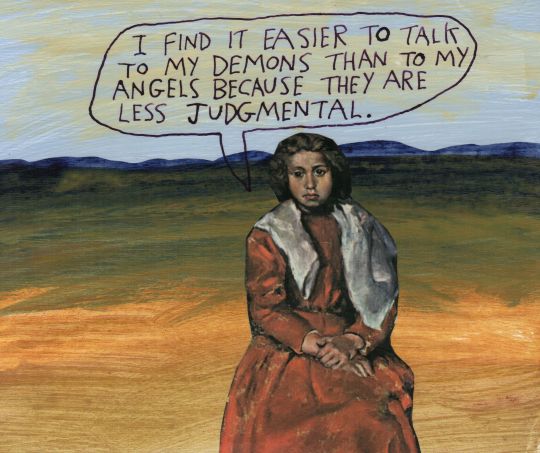
I find it easier to talk to my demons than to my angels because they are less judgmental. -- Michael Lipsey
74 notes
·
View notes
Text
It was easier to tell people that something was for money rather than love. You could move across the country for a low-paying internship. You could not do the same for a man who didn't expressly send for you.
Lisa Taddeo, from Ghost Lover
#materialistic#priorities#social commentary#love#money#unromantic#judgmental#quotes#lit#words#excerpts#quote#literature#lisa taddeo#ghost lover
24 notes
·
View notes
Text
Nah she don’t bite she judges you if you don’t ship Byler 😤
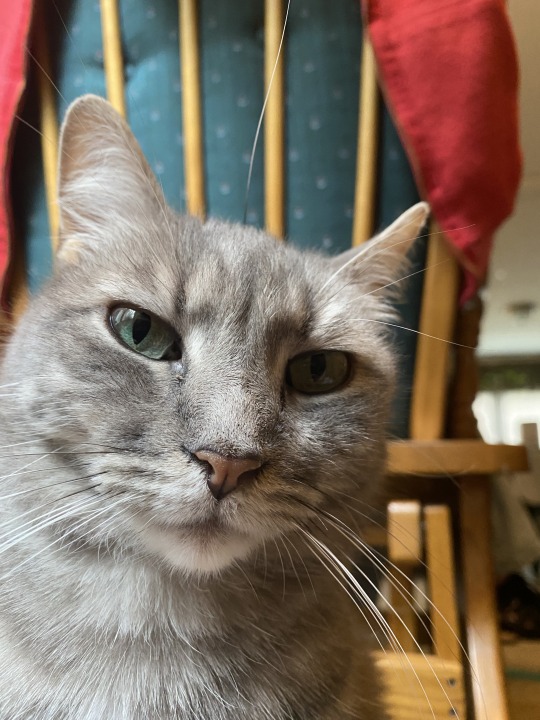
50 notes
·
View notes
Text
Anon wrote: I'm an ENFP, I'm 30 years old and I’m really needing to work on my self-confidence for me and for dealing with people. I’ve read in our blogs some posts that reinforce the importance of developing skills to have confidence. I think it's very legitimate.
In this process of learning new things, I often find myself in great difficulty and my inner child agonizes with insecurity. I look at friends who have confidence in themselves as something natural: confidence that they will learn, confidence in themselves, but unfortunately I am very unstructured (poor growth environment, without incentives), so I have a lot of difficulty trusting myself: especially being so inexperienced, clumsy and slow to learn everything.
What gets worse is being in environments where people don't have patience with beginners. Like now I'm living in a foreign country where people are very rude in the workplace. This hurts me a lot, because I have problems asserting myself and being respected. I discovered that they need rudeness to respect others. How to deal with this? Would I be able to impose myself without getting nervous and acting rude (as they usually have to do)?
And more, how can we learn from this situation? How can I be truly confident and also how can I simply demonstrate more confidence to make myself respected? I'm tired of conveying weakness. People don't value my sweetness it's not a good tool for me right now. How to develop self-confidence, at least start to demonstrate a little confidence and boundaries! And in the midst of this, the most important thing: how do you deal with such unpleasant people? Especially me being used to being such a sweet, "silly" person, always with my guard down, calm and considered weak by others.
---------------------
You seem to be talking about two issues that need unpacking separately: 1) personality, and 2) confidence.
You're having a personality clash with the people at work. Analytical psychology posits that personality clashes are disturbing because they remind you of negative things in yourself you dislike, so there is a need to go within to see what's really happening.
To be clear, I'm not denying that toxic people/environments exist. I believe your description and I would certainly dislike the workplace myself. The point I'm making is, when you have no choice but to be in that sort of environment, there are healthier ways to navigate it, but being judgmental about people is not a healthy way. Judgmentalness is a sign of projection, which is an unhealthy defense mechanism, see previous posts on the topic.
One basic thing type theory teaches us is there are different people in this world. Therefore, one must always begin with acceptance of differences, if one hopes to have healthy relationships in every realm of life. You've come to identify with the so-called "sweet" aspects of your personality. When you identify with one side of yourself, you tend to unconsciously valorize that side, otherwise, you might end up hating yourself. However, in the process of valorizing that side, you inadvertently end up denying, devaluing, dismissing, or denigrating its opposite. It's no accident that these "rude" people trigger you. They bring to light your unconscious self-rejections.
Workplace = professionalism. To succeed in any workplace, it's important to set a clear boundary between private and public. It isn't appropriate to use the workplace to hash out personal issues. E.g. It's not a place to play games about who you favor or dislike. It's not a place to seek validation to soothe your insecurities. I would even argue it's not a great place to seek friendship or companionship. When you bring the personal into the professional, you are more likely to create mess, drama, discord, and conflict. Of course, there are people who live for messiness. Ask yourself exactly what role you want work to play in your life and behave in accordance with those values/principles in every workplace.
When you describe yourself in mostly positive terms ("sweet") and describe other people in very negative terms like "rude", "impatient", or "unpleasant", there is a possibility that you are biased. Typism is a bias. It means you believe some personalities/traits to be superior or inferior to others. ENFPs typically hope to get along well with all sorts of people. If you hope for that, you need to eliminate typist thinking. This requires learning to always approach people in a neutral/professional manner, even when you dislike them at first. You don't know the full story behind people. Oftentimes, the majority of people in toxic environments are just like you, i.e., struggling to survive and doing whatever it takes to keep out of trouble.
When you approach people in a neutral/professional manner, you should adopt an objective perspective about them. Yes, you see their faults, but you shouldn't lose sight of their redeeming qualities. When you're being judgmental, you're likely to dismiss people whole-hog, unable to see their redeeming qualities. Being blind to the positive means you lose opportunities for improving the situation, which means losing hope, which means losing self-confidence as you feel more and more passive and helpless.
How about, instead of using the word "rude", call them "direct" or "candid"? Instead of "impatient", how about "efficient"? When you use more neutral language to characterize people, you reinforce the idea that every personality trait has its pros and cons. When you can finally visualize the upside, you can harness it to your advantage. This allows you to let go of negative feelings and focus on the work itself. Nobody is asking you to marry these people. All you have to do is work with them long enough to get stuff done. Keep your feelings to yourself and stick only to the facts. Once work is done, go home, put it out of your mind, and get on with the rest of your life. If there are things you need to learn to improve your performance in the workplace, spend time on self-improvement outside of work in order to speed up your progress.
.
With regard to confidence, when people bring up "lack of confidence", they often conflate several different concepts including: self-confidence, self-efficacy, self-esteem, and self-worth. It can be a complicated topic, so I'll elaborate on it for future reference. Some non-native English speakers have mentioned to me that their native tongue doesn't have direct translations for these four concepts, so beware that language might be a barrier for understanding them.
These four terms are relatively new in English as well; it wasn't until recently that they've started to filter down from academia into mainstream vocabulary. We know that these four concepts are distinct because, in the course of examining people who fall broadly under the category of "confidence issues", psychologists discovered that different people had somewhat different underlying processes happening, e.g., you could be good with one but struggle with the others. Of course, over time, how people use these terms in everyday language gets fuzzy, as the meaning diverges from the original academic definitions. I'll explain my understanding of them. You specifically mention learning issues, so I'll also connect to that.
I. SELF-CONFIDENCE arises from the degree to which you feel in control. If you 1) have good self-control, 2) feel as though you mostly have control over the direction of your life, and 3) feel as though you have enough control over your environment, then you're likely to feel self-confident. Thus, reflect on whether you feel some deficits in any of the above. There are things you can do to get a firmer sense of control.
Self-control is sometimes related to discipline, which means the ability to delay immediate gratification for a more important future goal. If you tend to be spontaneous, impulsive, or rebellious, then it's easy for you to lose sight of the bigger picture and it's hard for you to follow good learning procedures, which can easily derail your learning process. Some ways to improve your self-control over time:
improve your big-picture thinking so that you don't forget about your ultimate goal (through Ne)
learn the value of following good methods/procedures for achieving a goal (stop resisting Si)
structure your environment more intentionally to eliminate distractions/temptations and reward progress (tap into Te)
Having enough control over the direction of your life often relates to your ability to make good decisions. If you tend to be very emotional, indecisive, or easily overwhelmed by too much information, then it indicates you don't have a good system for processing the information required to inform your decisions. One way to improve your information processing ability is to improve your critical thinking skills. Critical thinking involves parsing information correctly, understanding its meaning, and systematizing information, in service of determining the best course of action (see past posts and recommended books). When learning, not being able to organize information and create feasible plans means slow progress.
Feeling a sense of control over the environment is often related to problem-solving skills. What happens when you meet a problem or challenge? Anxiety? Panic? Anger? Spiraling out of control? To have good problem-solving skills involves: deducing cause and effect, analyzing situations objectively, drawing valid conclusions, and generating good ideas and action-plans. Problem-solving is an important part of the critical thinking skills mentioned above. The process of learning is never completely smooth. You are bound to meet challenges and obstacles, so how do you address them? Self-confident people don't tend to focus on how they feel about problems, rather, they mostly focus on the problem itself and try to solve it as quickly as possible. When the problem is gone, the negative feelings go away.
II. SELF-EFFICACY arises from the degree to which you have faith in yourself, specifically your abilities. Efficacy means being able to bring forth an intended result (effectively) or reach an intended goal (efficiently). When you meet a problem/challenge, do you believe you have enough knowledge and skill to overcome it? If so, you have good self-efficacy. If not, do you believe, with enough dedicated learning and improvement, you can overcome it eventually? That is also good self-efficacy. In essence, it means you believe in yourself, with regard to possessing the resources or being able to obtain the resources necessary to succeed in reaching your goals.
Self-efficacy is sometimes related to competency and mastery. Being young and inexperienced, it's normal to have lower self-efficacy than someone older and wiser. In the learning process, it's important to have compassion for yourself and evaluate your progress fairly. Is the level of competency/mastery you expect from yourself proportional to the reality of your situation? If you haven't had many learning opportunities, through no fault of your own, then you shouldn't feel ashamed for being a bit "behind". This is NOT a personal flaw/failing that deserves punishment.
Note that "ahead" or "behind" are relative terms, meaning they can be understood from different perspectives, so are you using the right perspective? For example, are you evaluating yourself through your own eyes, through the eyes of your rivals, or through the eyes of an expert on the subject matter? Use fair and reasonable benchmarks/standards to measure where you are and where you should be. One reason people of any age suffer self-doubt is because they are too honest about what they don't know or can't do, to the point where they become dismissive of what they do know and can do. It's very important to be objective and balanced when assessing what you lack by also fully recognizing what you already possess or have achieved so far.
In my humble opinion, I believe people already possess everything they need to have good self-efficacy. Human beings evolved to be adaptable and that is largely how they have succeeded as a species. You have the capacity to learn and adapt to your environment. Get back in touch with it, have faith in it, and harness it as necessary. Instead of thinking there's only ONE WAY things should/must go, be more flexible and open to alternatives (use Ne).
III. SELF-ESTEEM refers to how you generally feel about yourself. This is usually related to the kinds of beliefs you have about yourself and the part they play in constructing your self-concept. The beliefs you have about yourself (e.g. about who you are and what you are capable of) are heavily influenced by your past experiences.
One of the most common signs of low self-esteem is negative self-talk. Observe the kinds of things you say to yourself in your head. Is it mostly negative, neutral, or positive? If it's mostly negative, how are you meant to feel good about yourself? People with low self-esteem say very nasty things to themselves that they would never dream of saying to others. Why the double standard? As a "sweet" person, you have empathy for others, so be sure to extend the same empathy to yourself.
An example related to learning: I've unfortunately known too many students to abandon a subject simply because one of their (jerkass) teachers told them they would never be good at it. The negative experience led them to form the belief that "they weren't meant to study it" and couldn't succeed even if they tried. Every time they encountered the subject, the belief would rise up and they'd talk themselves out of trying. Of course, watching themselves fall further and further behind through repeated failures made them feel worse and worse about themselves. Self-esteem can be damaged in a vicious cycle: By believing the worst of yourself, you aren't properly motivated to learn and improve, and then you meet failure after failure, which then confirms your negative beliefs about yourself.
One good way to tackle low self-esteem is cognitive-behavioral therapy. A cognitive-behavioral therapist is trained to bring to light your underlying beliefs (and how they interact with your feelings and behaviors). By bringing unrealistic beliefs into consciousness, you open up space to change them or adjust them to be better aligned with reality. Perhaps you need to reflect on the beliefs you have about yourself, regarding who you are/aren't, who you're supposed/not supposed to be, what you hope/don't hope to be, what you are/aren't capable of, etc. Are your beliefs attuned to your current reality? Negative past experiences don't have to dictate your future, but they will if you're unaware of how they still influence you today.
IV. SELF-WORTH refers to feeling "good enough", specifically whether you believe you are worthy of acceptance and love. When you're young, your sense of self-worth arises in large part from how you were regularly treated by the people around you. If you grew up in an environment where love was conditional, then your self-worth likely became tied to those conditions. For example, if your parents only show you love when you get As in school, it's likely that your self-worth will become tied to your academic performance and future professional success.
Self-worth can also be damaged in a vicious cycle. If you believe you aren't worthy of love, then you signal to others that it's okay to treat you poorly, which reinforces the idea that you aren't worthy. One common way people defend against low self-worth is to make themselves into something "better" or more "worthy" to their social environment, or to obtain something they can offer in exchange for social validation of their worth (e.g. wealth or status). This striving can lead to problems with overachieving, perfectionism, anxiety, depression, self-blame, or self-harm.
One common way to tell if you suffer self-worth issues is if you are often engaged in social comparison that leads you to envy people you deem somehow "superior" to you and/or feel shame about being "inferior" to them. If that's the case, it's likely that you need to correct some faulty thinking patterns:
Don't make illogical comparisons, such as comparing your first step against someone else's thousandth step. These kinds of illogical comparisons exacerbate feelings of unworthiness. You're inflicting pain upon yourself by thinking this way.
Don't be superficial and judge people only by their cover. Remember, you don't really know what someone went through to get where they are today. Perhaps if you knew the full story, their situation wouldn't seem very enviable at all. Maybe you want to play golf as well as Tiger Woods, but would you also want to give up your childhood and constantly suffer harsh treatment as he did?
Don't expect that every person should be the same, know the same things, have the same abilities, live the same life, etc. Respect individuality, which means allow for differences between yourself and others. Understand that everyone has their own path in life rather than believing everyone should conform to the same crude standard (i.e. avoid Te loop).
Do you desperately need everyone to like you or think you're great? Wanting the approval of toxic people is basically granting them power over you. Don't hurt yourself by trying to become something you're not just because someone triggered your insecurity. Insecurity is your problem, not their problem. It is the insecurity itself you need to face up to by reflecting on where it really comes from and what it says about your ability to accept and love yourself as you are (this is related to problems with Fi development in ENFPs).
What many people with low self-worth don't understand is that self-worth starts from within; it doesn't come from the people out there. When you're able to accept and love yourself and stand proud in who you are (without all those "conditions" that were imposed upon you earlier in life), you'll then be capable of teaching others to respect you. With healthy pride in yourself, it's far easier to be assertive, set boundaries, and advocate for your needs. Why? Because you firmly believe you matter, you have a right to the space you inhabit, you have a right to be yourself, and you deserve to be treated as an equal. It's also easier to ignore, dismiss, or eject toxic people when you finally realize that you don't need or want anything from them.
All four of these concepts relate to how you perceive and evaluate yourself, but from different angles. You mention feeling insecure, but which of the above gets closer to the root of the issue? It's important to be more precise about identifying the problem if you hope to come up with the right solution.
#enfp#auxiliary fi#te loop#self confidence#self efficacy#self esteem#self worth#social comparison#envy#judgmental#self compassion#critical thinking#workplace#career#adaptability#typism#ask
29 notes
·
View notes
Text
Gummy Bears in a Parked Car
If there's one thing being slightly-more-visible-than-average on TikTok has taught me, it's that anger directed at me from a stranger is only rarely about me at all.
I posted a video about the time I got stuck in traffic and ate too many gummy bears out of boredom and got really sick. 500,000+ views later, one lone viewer is berating me in the comments for "sitting in traffic with [my] eyes closed," commentary peppered with snarky rhetorical questions and all-caps yelling.
Here're the details: I was stopped for 45 minutes just behind the scene of an accident. The car was in park. During that time in the parked car, I shut my eyes for approximately two seconds at a time so I could bite the head off a bear, hide its headless body in my hand, and then try to guess the flavor without seeing the bear. This process takes only slightly longer than a normal blink. The car I'm sitting in was in park for 45 minutes. And you're berating me for closing my eyes?
"No, it doesn't matter that you were stopped," they're saying (and these are direct quotes). "I'm frustrated, and I'm judging you."
....ma'am, are you sure judging someone for eating gummy bears in a parked car is a reasonable reaction to this situation? Are you sure your reaction is proportional, and worth either of our time? Because it's definitely not!
This isn't about me. I don't know what it's about, but a person in a centered frame of mind doesn't get heated over something so small and proceed to fuss at a stranger for eating gummy bears in a parked car.
Moment like these remind me that whenever someone on the internet chooses to bully or berate me over nothing, it's rarely about me. I won't let someone else's unresolved issues ruin my day. Neither should you.
The next time someone pops out of the woodwork to pick a fight over nothing, I hope you think of me.
I hope you think of me and say to yourself, "gummy bears in a parked car," and move on with your day.
This is my gift to you.
18 notes
·
View notes
Text
I'd rather be a dandelion
than a rose
I don't need to be fed
I find my own fertile soil
My best friends are little children
They make chains of me
I am persistent
And legion
No thorns here.
The bees are my family of choice
I'm glad to share my pollen
Careful who you call a weed
There are more of me than of you
.
89 notes
·
View notes
Quote
People ask me how I stay calm when people mock and judge me. Believe it or not but before, I used to be reactive. But these days, I remain unfazed because I learned that people's malicious actions and words toward me are reflections of their murky attitudes and projections. That way—I remain unbothered and unaffected by people who don't even know me 100%.
Lady Macabre Beth
#judgmental#judgmentalpeople#unfazed#unbothered#unaffected#unbotheredqueen#gotanythingbettertodowithyourtimeotherthanjudgepeople#imeancomeongetalife#stopwatchingthegameandbepartofthefuckinggame#projections#projection#projecting#intp#intj#entp#entj#istp#estp#istj#estj#aquarius#unbotheredera#unaffectedera#unfazedera#mindovermatter
131 notes
·
View notes
Text
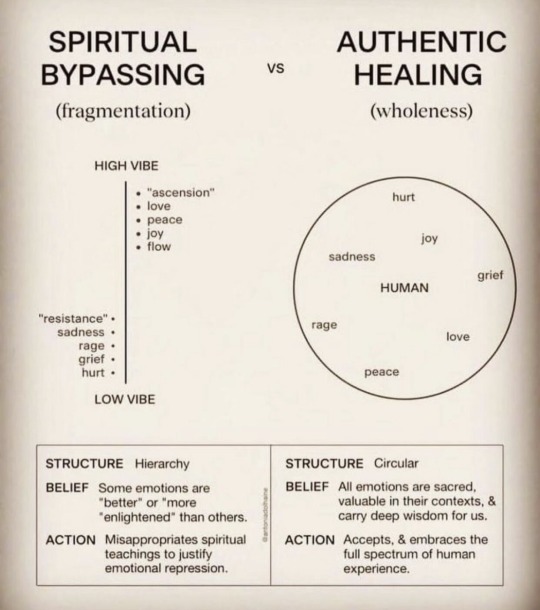
Integrity = to be “integrated” 💘
#bypass#spiritual bypass#integration#integrity#healing#wholeness#authenticity#vulnerability#judgmental#inner work#feel it to heal it#fragmented
13 notes
·
View notes
Text
"It's the version my grandmother taught me," said Oats.
"She was keen on crushing infidels?"
"Well, mainly I think she was in favor of crushing Mrs. Ahrim next door, but you've got the right idea, yes. She thought the world would be a better place with a bit more crushing and smiting."
"Prob'ly true."
"Not as much smiting and crushing as she'd like, though, I think," said Oats. "A bit judgmental, my grandmother."
"Nothing wrong with that. Judging is human."
"We prefer to leave it ultimately to Om," said Oats and, out here in the dark, that statement sounded lost and all alone.
"Bein' human means judgin' all the time," said the voice behind him. "This and that, good and bad, making choices every day...that's human."
"And are you so sure you make the right decisions?"
"No. But I do the best I can."
"And hope for mercy, eh?"
The bony finger prodded him in the back.
"Mercy's a fine thing, but judgin' comes first. Otherwise you don't know what you're bein' merciful about."
Terry Pratchett, Carpe Jugulum
#esme weatherwax#granny weatherwax#mightily oats#carpe jugulum#discworld#terry pratchett#theology#philosophy#religion#ethics#judgment#judgmental#humans#human nature#neighbors#grandmother#a better world#making choices#do your best#probably true#long quote#extended quote
893 notes
·
View notes
Photo

“Your judgement and anger at me for not believing your religion are good examples of the oppressive nature of your religion.”
-- George Carlin
Believers who tell me I need their god and their religion always demonstrate exactly why I don’t want either.
82 notes
·
View notes
